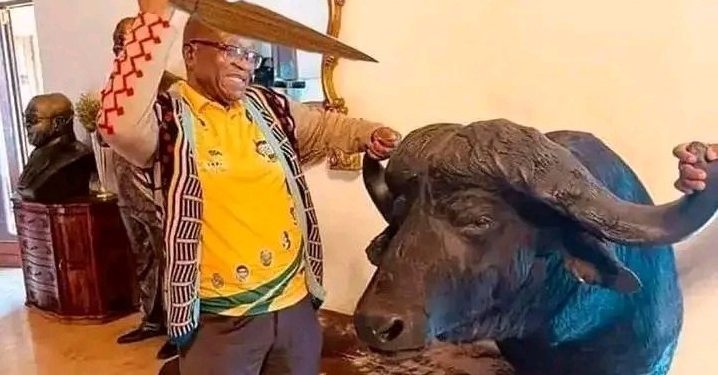Former South African President Jacob Zuma is being likened to a living Gilikanqo, a mythical hairy monster, as he leaves a trail of political destruction. Zuma, once hailed as a hero in the fight against apartheid, is now accused of abusing the African National Congress (ANC), mistreating fellow comrades, and exploiting the power of the state for personal gain.
Zuma’s tenure saw a series of scandals, including corruption charges and allegations of state capture. The ANC, in its attempt to stand by its erstwhile president, has suffered irreparable damage. The party, once a symbol of the anti-apartheid struggle, now grapples with internal strife and public distrust.
The former president stands accused of enriching his family and cronies through questionable dealings. His actions have not only tarnished his own legacy but have cast a shadow over the ANC’s reputation. Critics argue that Zuma’s abuse of power has set a dangerous precedent for the country, undermining the democratic values it fought hard to establish.
As South Africa reflects on Zuma’s legacy, the ANC faces a daunting task of rebuilding and regaining public trust. The comparison to a Gilikanqo serves as a metaphor for the monstrous impact Zuma’s actions have had on the political landscape, leaving the ANC to grapple with the aftermath of his tumultuous reign.






















